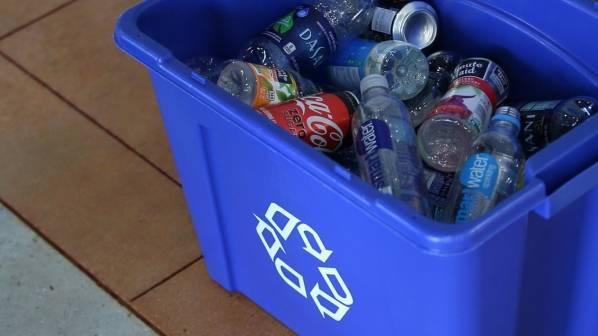
More companies are launching zero-waste, closed-loop or circular economy waste diversion programs, but communicating the importance of this effort to consumers is not always easy. After all, with the exception of professionals deeply vested in the sustainable business space, those aforementioned terms really do not mean anything.
But what about simplifying the terminology so that consumers not only grasp these waste reduction and elimination programs, but to actually become inspired and participate as well?
Coca-Cola is attempting to harness such enthusiasm by announcing a one-for-one recycling plan.
According to the company, Coca-Cola aims to recycle one bottle or can for every single one that it sells by 2030.
Coca-Cola is calling this campaign “World Without Waste,” based on the premise that consumers are used to having convenient and lightweight food and beverage containers readily available. The problem, however, is that too much waste is being generated worldwide. Now Coca-Cola says it wants to be part of the solution.
Coca-Cola has been among several high-profile companies targeted by Greenpeace over what the environmental NGO says is the company’s ongoing contribution to the pollution created by the surge in single-use beverage containers.
To answer any critics, Coca-Cola has developed a two-part recycling strategy. First, the company says it will invest some of its marketing budget into educating customers how and when to recycle. In addition, Coca-Cola claims it will make all of its packaging 100 percent recyclable worldwide, while having all plastic bottles be comprised of 50 percent recycled content by 2030.
Not everyone is impressed with Coca-Cola’s plan. "Instead of focusing on reducing the amount of plastic it produces, the surefire way to reduce ocean plastic pollution, Coca Cola is trying to offset its huge plastic footprint by investing in a bit more recycling," Louise Edge, a campaigner for Greenpeace United Kingdom, said in a statement sent to CNN.
Greenpeace says that as the company is responsible for producing 100 billion plastic bottles annually, it should take more responsibility for the overwhelming amount of waste it is creating. Last summer, the NGO’s Canada chapter launched a social media campaign that urged followers to take photos of discarded Coca-Cola bottles in a move to publicly shame the company to boost its waste diversion programs. A similar signature collecting campaign that is still running has gained the support of over 500,000 people.
Coca-Cola says it addressing those criticisms, and will work with several global partners to make this promise a reality. Organizations include the Ellen MacArthur Foundation’s New Plastics Economy initiative, The Ocean Conservancy/Trash Free Seas Alliance and World Wildlife Fund. The company will also launch start education plans with new partners at the regional and local levels in order to find new ways that could inspire consumers to recycle more packaging.
Image credit: Coca-Cola

Leon Kaye has written for 3p since 2010 and become executive editor in 2018. His previous work includes writing for the Guardian as well as other online and print publications. In addition, he's worked in sales executive roles within technology and financial research companies, as well as for a public relations firm, for which he consulted with one of the globe’s leading sustainability initiatives. Currently living in Central California, he’s traveled to 70-plus countries and has lived and worked in South Korea, the United Arab Emirates and Uruguay.
Leon’s an alum of Fresno State, the University of Maryland, Baltimore County and the University of Southern California's Marshall Business School. He enjoys traveling abroad as well as exploring California’s Central Coast and the Sierra Nevadas.














